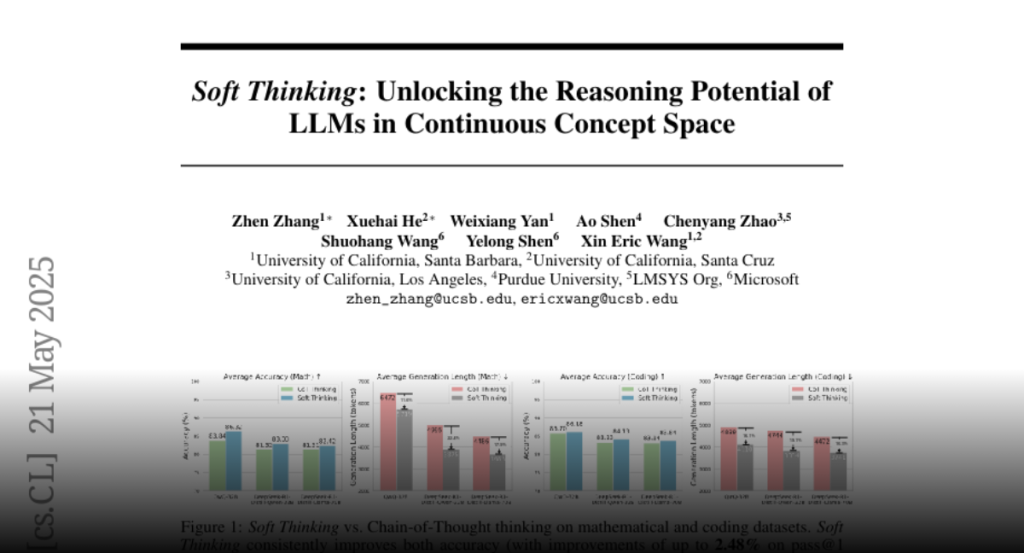Soft Thinking, a training-free method, enhances reasoning by generating soft, abstract concept tokens in a continuous space, improving accuracy and efficiency in mathematical and coding benchmarks.
Human cognition typically involves thinking through abstract, fluid concepts
rather than strictly using discrete linguistic tokens. Current reasoning
models, however, are constrained to reasoning within the boundaries of human
language, processing discrete token embeddings that represent fixed points in
the semantic space. This discrete constraint restricts the expressive power and
upper potential of such reasoning models, often causing incomplete exploration
of reasoning paths, as standard Chain-of-Thought (CoT) methods rely on sampling
one token per step. In this work, we introduce Soft Thinking, a training-free
method that emulates human-like “soft” reasoning by generating soft, abstract
concept tokens in a continuous concept space. These concept tokens are created
by the probability-weighted mixture of token embeddings, which form the
continuous concept space, enabling smooth transitions and richer
representations that transcend traditional discrete boundaries. In essence,
each generated concept token encapsulates multiple meanings from related
discrete tokens, implicitly exploring various reasoning paths to converge
effectively toward the correct answer. Empirical evaluations on diverse
mathematical and coding benchmarks consistently demonstrate the effectiveness
and efficiency of Soft Thinking, improving pass@1 accuracy by up to 2.48 points
while simultaneously reducing token usage by up to 22.4% compared to standard
CoT. Qualitative analysis further reveals that Soft Thinking outputs remain
highly interpretable and readable, highlighting the potential of Soft Thinking
to break the inherent bottleneck of discrete language-based reasoning. Code is
available at https://github.com/eric-ai-lab/Soft-Thinking.

